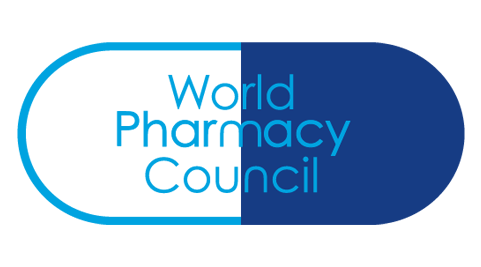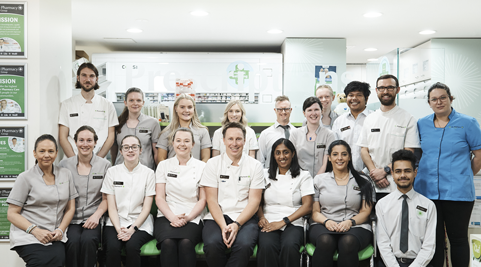By Colm Maguire, Chief Operating Officer

The election of the Labor Government after a long campaign opens the way for Prime Minister Anthony Albanese and his Health Minister Mark Butler to get down to business and help provide ongoing certainty for Australia’s community pharmacies and their staff.
By any measure, the past few years have been among the toughest faced by the community pharmacy sector, our patients and business in general. The new Government needs to ensure these practices remain confident about their future so that in turn they can continue providing the services their communities depend on.
We are encouraged by the fact that historically the Labor Party has long been a strong supporter of community pharmacy and on many occasions its representatives have publicly recognised the important role that community pharmacists play in the healthcare sector.
Never has this role been more evident than with COVID-19 when bringing pharmacies into the vaccination rollout helped to get the program back on track.
We need the new Government to build on this impetus by ensuring community pharmacies can continue to provide the medicines and services their patients need.
However, we must continue to progress the profession and realise what community pharmacists can offer patients on an ongoing basis. A key way to achieve this is by fully utilising the skills and training of pharmacists by allowing them to practice to their full scope.
We have every reason to be confident the new Government will pursue this course after the speech Mark Butler gave at the APP2022 on the Gold Coast earlier this year. As the incoming and recently sworn in Health Minister we look forward to realising these commitments.
Mr Butler said the nation’s healthcare workforce problems would become even more challenging, as health professionals, who have been on the frontline of the COVID-19 pandemic, feel burnout and as a result may look to changing careers.
“Other countries that are ahead of us on the COVID path are living what they call ‘the great retirement’, where scores of exhausted health workers take early retirement or simply shift sectors to find easier jobs,” he said.
“They’ve hung on for the first two years of the pandemic through a sense of mission, but they’ve just had enough - they’re spent, they’re done.
“We know every indication is we’re going to face that same great retirement from the health sector to some extent or another.
“Which is why we have to find ways to fully utilise the skills and training of every single one of our health professionals, and that includes pharmacists.”
Mr Butler also said community pharmacy must be recognised as a health provider rather than being seen as part of the retail sector.
“I’m very clear in my mind - to deal with some language that is being used at the moment - that community pharmacy is not a retail service, it’s a health service,” he said.
“I’ve also been very clear right through my time back in the health portfolio, and I’ve been very public about this in a time of skyrocketing demand and plummeting workforce supply, it simply doesn’t make sense not to have every single health professional operating as close as possible to the top of their scope of practice.
“The precise details of that should not be arm-wrestled out by politicians - these are clinical questions that should be progressed maturely and collaboratively by all groups.”
Further encouragement for the profession came in a pre-election letter to the Guild in which the now elected Labor government stated:” Labor remains committed to existing rules governing pharmacy location and ownership as reflected in the 7th Community Pharmacy Agreement and related delegated legislation, including at the state level. This includes continued support for the long-standing bipartisan position that pharmacies be owned by pharmacists.”
One change the new government is already committed to is making medicines more affordable.
The Guild campaigned strongly for the maximum Pharmaceutical Benefits Scheme general co-payment be reduced from $42.50 so that more people could afford their necessary medicines.
Increasingly community pharmacists have been hearing from patients that they simply cannot afford their medicines. This has led to distressing situations where a patient may opt not to have their medicines dispensed, they cut down how often they take their medicines, or they even have to choose which family members they afford to buy medicines for.
This is set to change with Labor having promised during the election campaign to cut the maximum general co-payment to $30 from 1 January next year. Making medicines more affordable for all Australians is a priority and we will work closely with Mark Butler to help implement this measure. Worth noting is that this was one of the only policies to have bi-partisan support as we approached the election and clearly signals the importance of our advocacy on this matter.
Labor affirmed its commitment to this policy in a pre-election letter to the Guild in which it stated:
“Labor acknowledges the work the Guild has done in advocating for affordable medicines reform. Labor agrees with the Guild that all Australians deserve access to universal, prompt, and world class medical care, and no one should be missing out on the medicines they need due to cost. As you are aware, on 1 May Labor Leader Anthony Albanese announced that a Labor Government will cut the maximum co-payment under the Pharmaceutical Benefits Scheme (PBS) from the current maximum of $42.50 to $30.00. This represents a saving of $12.50 or 29 per cent. The changes to the PBS will take effect from 1 January 2023 and will save Australians more than $190 million a year in out-of-pocket costs.”
Our patients and their wellbeing will always come first.
The Guild welcomes the commitments made and we will continue to advocate for ways to further improve medicine affordability for our patients while representing you as the voice of community pharmacy on all elements impacting your practice.


